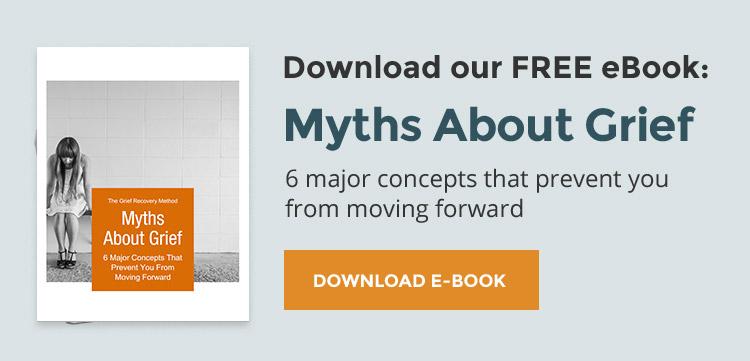
Grief is almost always associated with death and divorce, but there are over 40 other kinds of losses you might experience during your lifetime, including the end of a job.
Have you ever lost a job?
Losing a job can bring with it conflicting feelings like fear, sadness, relief, or excitement. Not only is the job gone, but all of the habits and rituals that go along with it change too. Things like where you stop for coffee before work, seeing the same delivery person each day, and even the rush hour commute. There might even be things you miss about the job even if you’re relieved to not work there anymore. You see, grief is the conflicting feelings caused by the end of or change in a familiar pattern of behavior. A change in daily habits and rituals of work certainly fits the bill.
And what about the loss of security when you’re no longer getting a steady paycheck? That can cause fear and grief too.
Although losing can be devastating, many people won’t talk about their feelings. Most of us have learned to stuff our emotions, or that our grief isn’t important because we compare it to another type of loss.
Not only do we minimize our own feelings, but well-meaning friends might unintentionally do so too. This happens when people offer intellectual statements about why you shouldn’t feel bad, rather than listening without judgment, criticism, or analysis.
Have you heard any of these statements after you lost or left a job?
“You should be grateful you can find another job.”
“You can always get unemployment.”
“Now you can take time to find out what you really want to do.”
“At least you weren't fired.”
“You didn’t like working there anyway.”
I lost a few clients when the COVID-19 lockdown started. I was heartbroken about no longer working with people I had built relationships with over the years. Not only was I sad about those relationships changing, but I had financial hopes, dreams, and expectations that would no longer happen in my timeframe. I most certainly was grieving. I felt uncomfortable talking about it because I didn’t have it as bad as other people. I mean, I still had work and money coming in. I thought, “Who am I to be afraid when I’m not completely out of work like so many other people”?
Thankfully, I practiced the tools taught to me through the Grief Recovery Method, so knew that comparing losses minimized my feelings. So I told the judgemental voice in my head, “Thank you for sharing” and asked a trusted friend to talk. I’m so glad that I did.
A lot of people are out of work due to COVID-19. That can be scary. Grief is caused by a change in a familiar pattern and losing a job can be heartbreaking. Please know that your feelings are normal and natural and there is help if you want it.
A wonderful first step is taking the actions in The Grief Recovery Handbook. You can also find many resources on our website, blog, or social media.
Photo: 123rf.com


























Add new comment